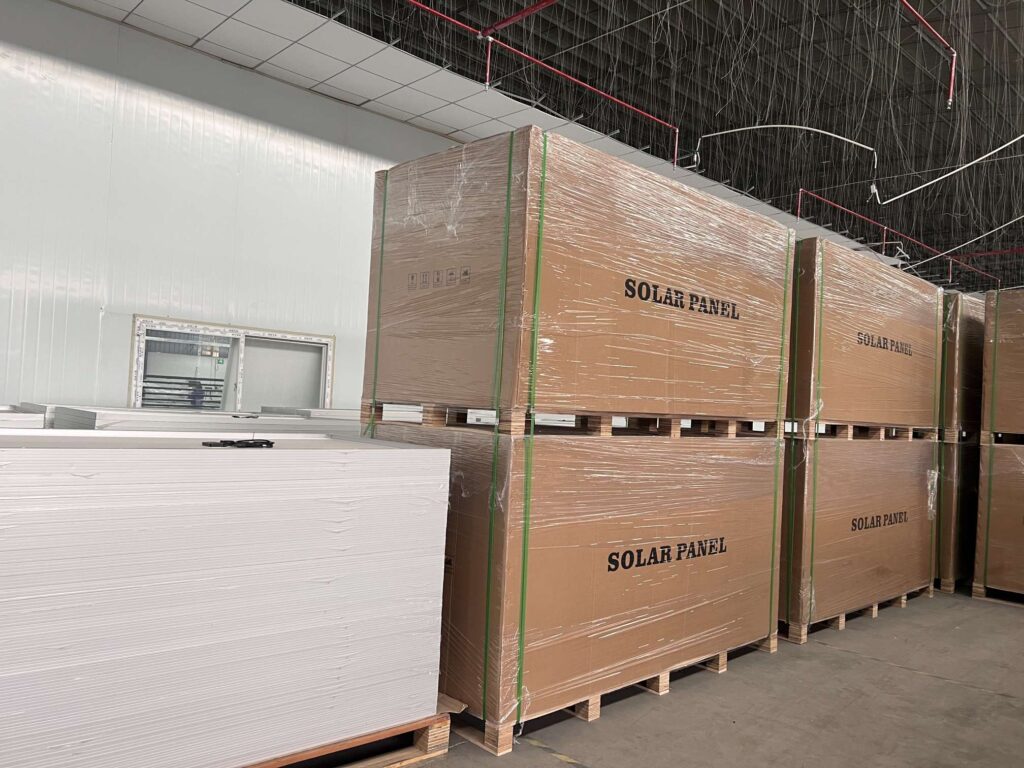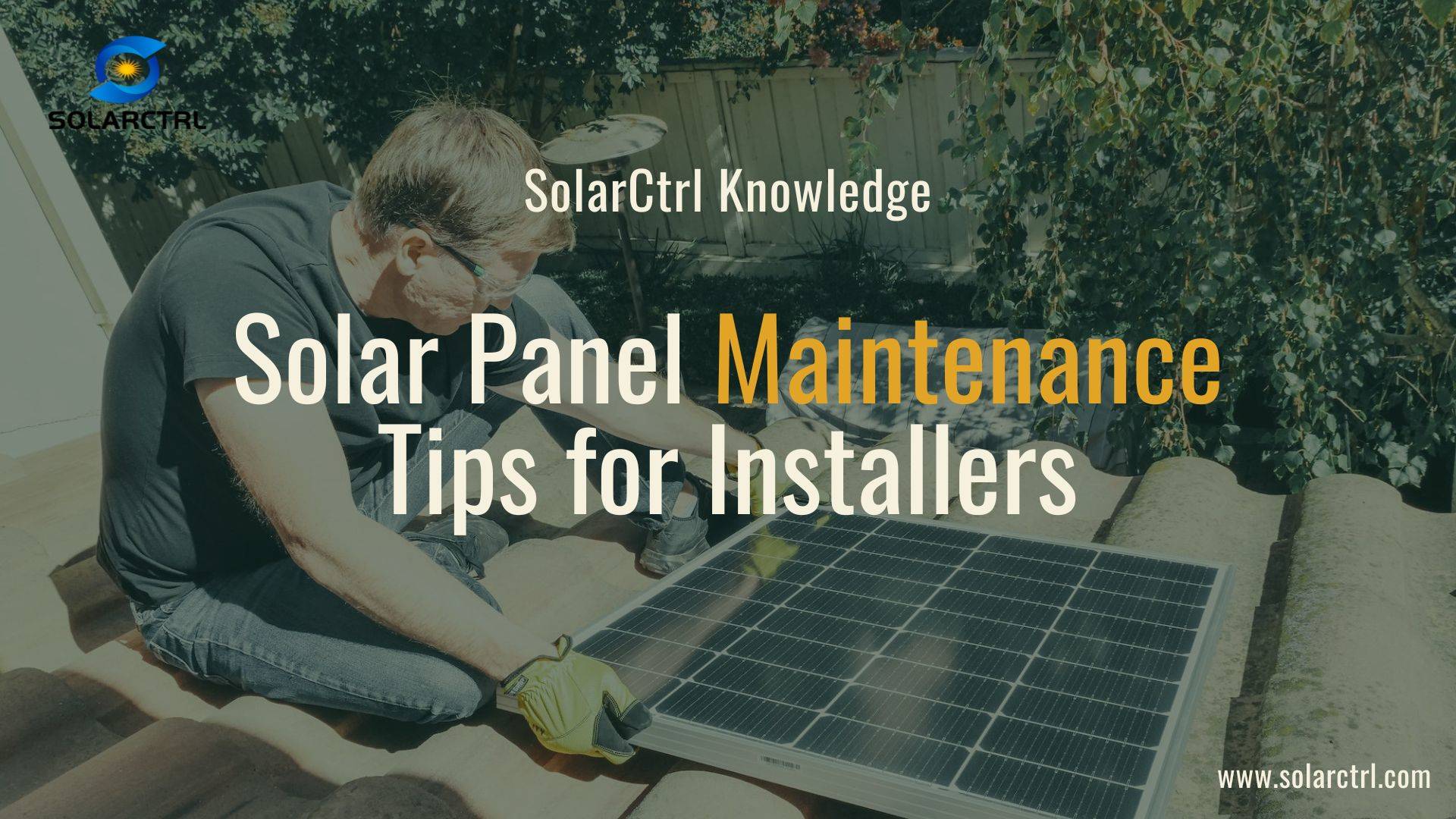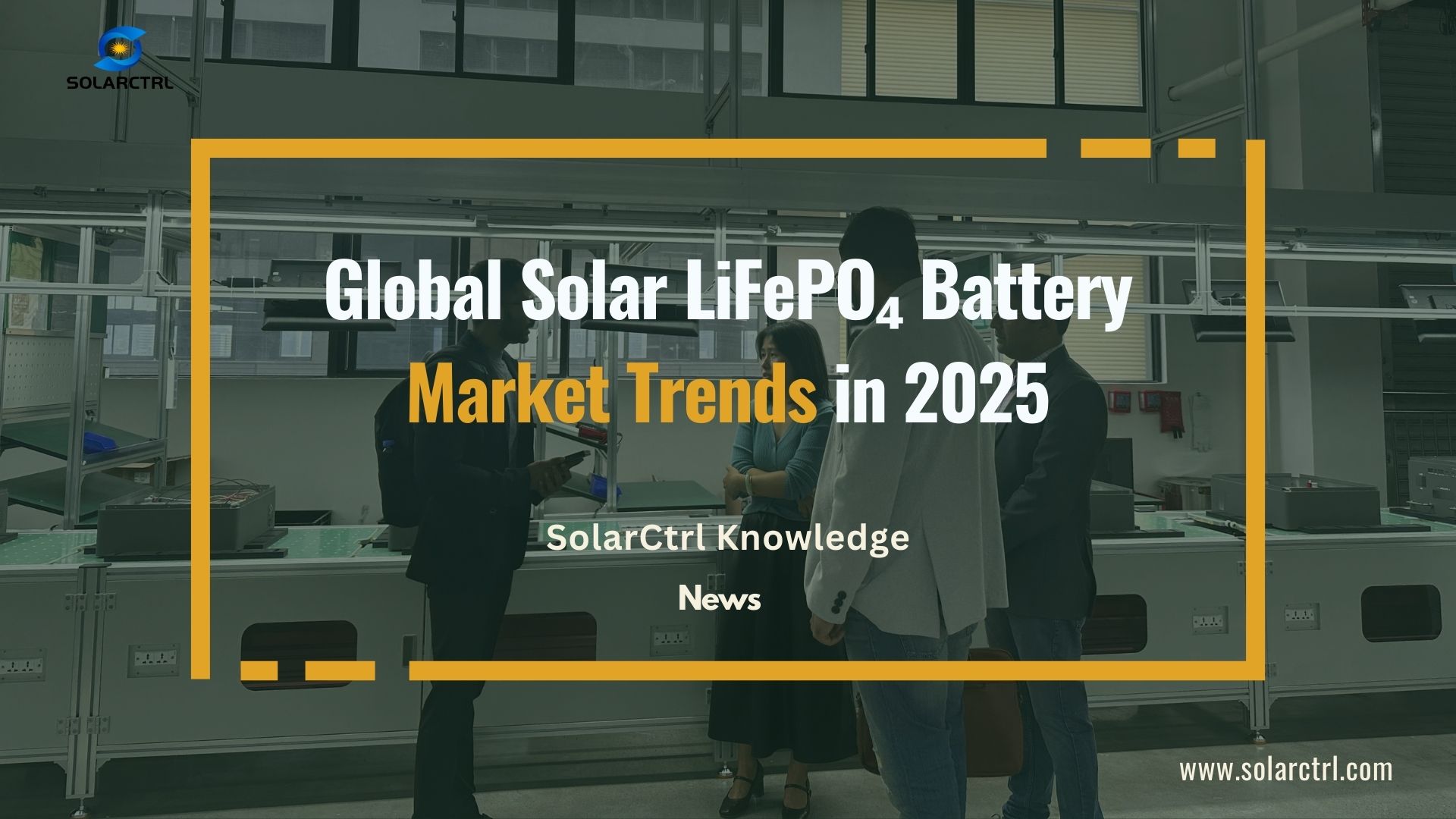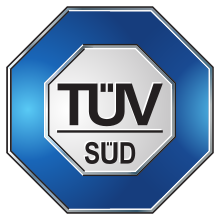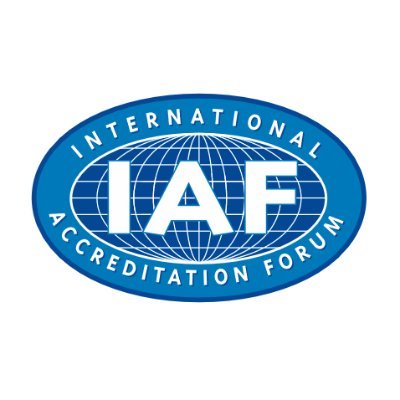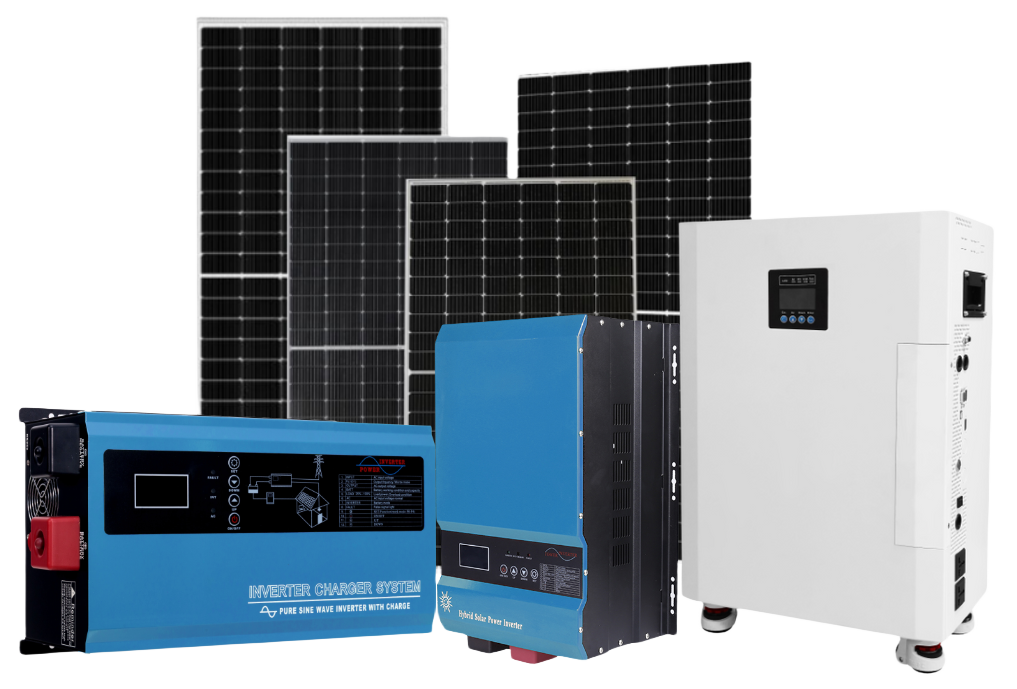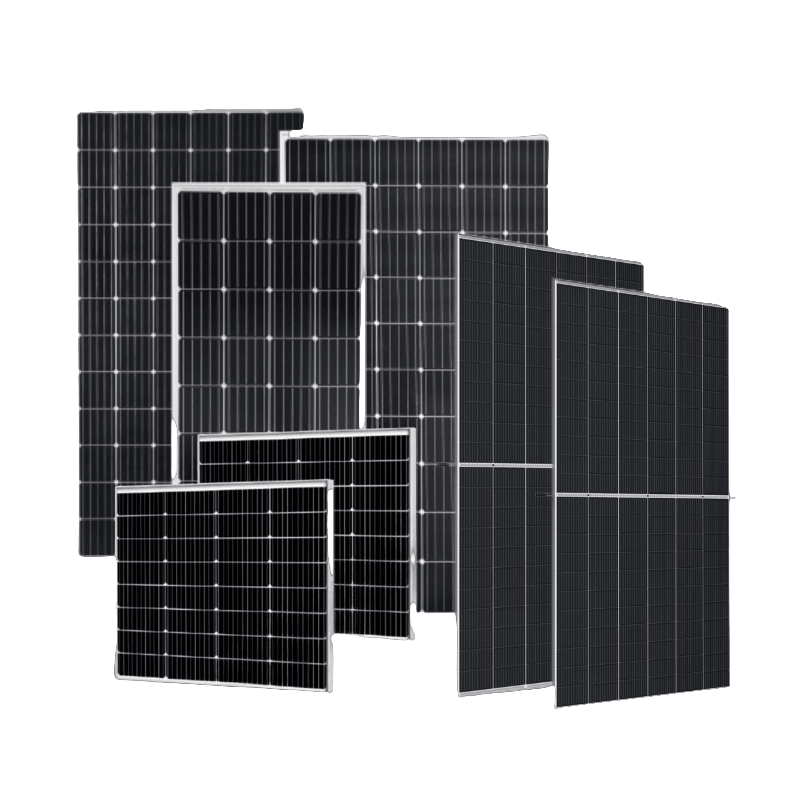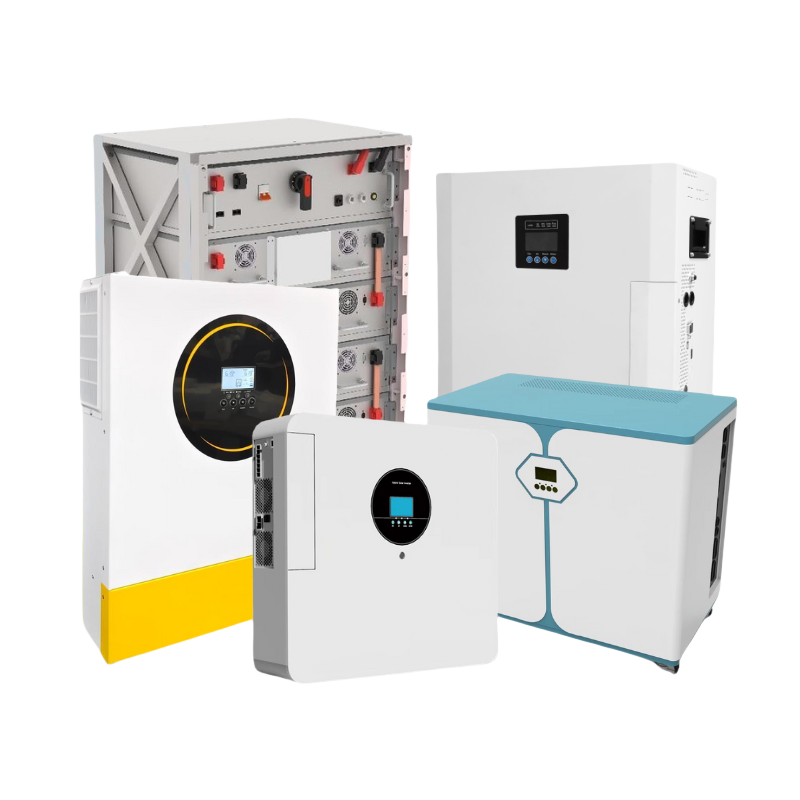Introduction
In today’s eco-conscious world, solar energy stands at the forefront of renewable energy solutions, offering a sustainable way to reduce carbon emissions and decrease utility costs.
As the adoption of solar panels continues to grow, understanding the nuances of solar panel maintenance becomes paramount for both installers and owners. Proper care and routine maintenance are essential to maximizing the efficiency, performance, and lifespan of solar panels.
This article delves into comprehensive maintenance tips and practices that solar panel installers can share with their clients, ensuring that these green energy solutions continue to provide value and efficiency over the years.
Section 1: Understanding the Importance of Solar Panel Maintenance
Solar panels are engineered for durability and minimal maintenance, serving as a testament to the advances in renewable energy technology.
Despite their robustness, factors such as environmental conditions, weather patterns, and external elements can significantly impact their performance.
1.1 Environmental and Weather-Related Influences
Solar panels are exposed to the elements, facing direct sunlight, rain, snow, and wind. While they are built to withstand these conditions, their efficiency can be affected by dust, pollen, and other particulates that accumulate on the surface.
In areas prone to high dust or industrial pollution, solar panels can quickly gather a layer of grime, which can obstruct sunlight and reduce the energy conversion rate.
Moreover, seasonal changes bring about varying weather conditions that can influence solar panel performance. For instance, heavy snowfall can cover panels, blocking sunlight entirely.
In coastal areas, salt mist can corrode panel components over time, necessitating more frequent inspections and cleaning.
1.2 Impact of Debris and Physical Damages
Beyond environmental factors, solar panels are also susceptible to debris accumulation and physical damage.
Leaves, bird droppings, and branches can not only shade the panels but also cause long-term damage if not cleaned regularly.
Physical damages, such as cracks or fractures from hailstorms or falling objects, can compromise the integrity of the panels, leading to potential safety hazards and decreased efficiency.
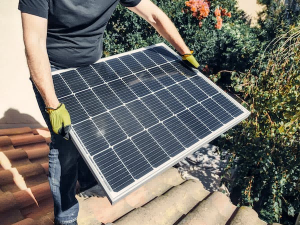
1.3 The Importance of Regular Maintenance
Given these challenges, regular maintenance becomes paramount in preserving the performance and lifespan of solar panels.
By conducting periodic inspections, installers can identify and address issues such as shading obstructions, accumulation of debris, and physical damages.
Proper maintenance routines can help in:
- Maximizing Efficiency: By keeping the panels clean and free from obstructions, solar panels can operate at their highest efficiency, ensuring maximum energy production.
- Extending Lifespan: Regular checks and timely repairs can prevent minor issues from escalating into major problems, thereby extending the operational lifespan of the solar panels.
- Ensuring Safety: Inspections can identify safety risks, such as damaged wiring or loose mounts, which can pose fire hazards or physical dangers.
Section 2: Maintenance Tips for Solar Panel Installers to Share with Clients
2.1 Regular Cleaning
Schedule Cleaning Based on Location: The frequency of cleaning depends on the location of the installation. In dusty areas or places with frequent bird activity, solar panels may require more frequent cleaning.
Use the Right Cleaning Materials: Advise the use of soft cloths or sponges and mild soaps to clean the panels. Harsh chemicals or abrasive materials can damage the panel’s surface.
Safety First: Remind clients to prioritize safety, especially for rooftop installations. Using long-handled brushes or hiring professional cleaning services can prevent accidents.
Consider Environmental Factors: Besides location-specific cleaning schedules, also consider seasonal changes. For instance, after pollen season or in regions prone to sandstorms, a more thorough cleaning may be necessary.
Opt for Professional Cleaning for Complex Installations: In cases where solar panel installations are extensive or located in hard-to-reach areas, recommend professional cleaning services. Professionals have the right tools and techniques to clean without causing damage to the panels.
Water Usage and Conservation: Highlight the importance of using minimal water for cleaning, especially in areas with water usage restrictions. Dry cleaning methods or eco-friendly solar panel cleaning solutions can be alternatives.
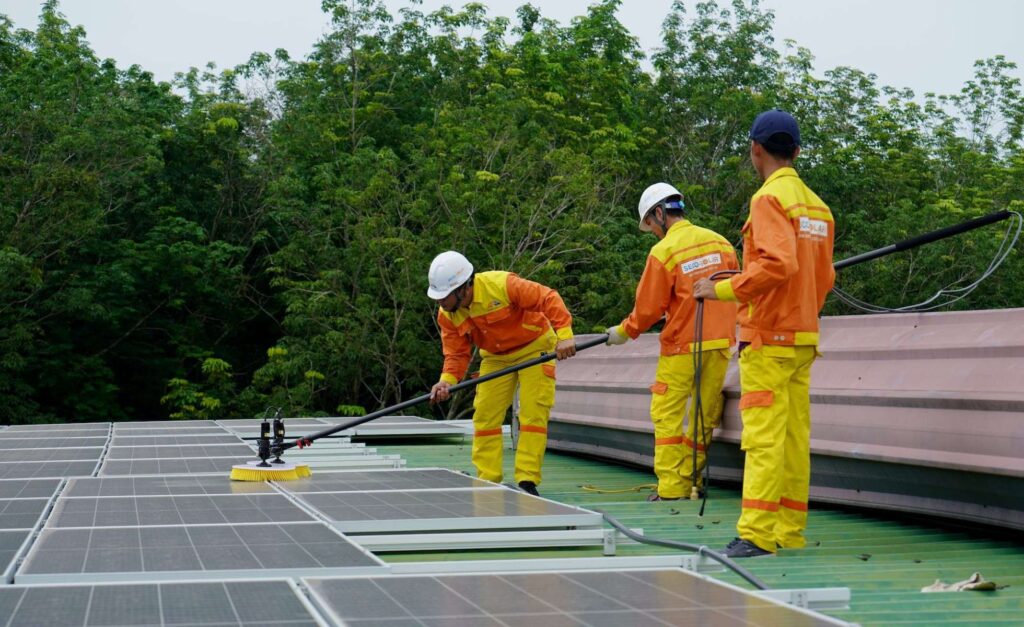
2.2 Visual Inspections
Check for Obstructions: Encourage clients to regularly check for any obstructions that may shade the panels, such as growing trees or new constructions.
Inspect for Physical Damage: Look for any signs of wear and tear, such as cracks, discoloration, or frame damage. Early detection of physical damage is crucial for timely repairs.
Ensure Proper Mounting and Wiring: Loose mounting structures or wiring can lead to inefficiencies or potential hazards. Tightening and securing these components should be part of the maintenance routine.
Create a Checklist for Clients: Develop a simple inspection checklist that clients can follow. This checklist could include points to look for, such as checking for visible damages, ensuring the panels are free from shade, and verifying the tightness of mounting systems.
Recommend Regular Timing for Inspections: Suggest a routine schedule for inspections, such as at the beginning of each season, to prepare the solar panels for different weather conditions.
Use of Technology for Inspections: Advise on the use of drone technology for inspecting hard-to-reach installations. Drones equipped with cameras can provide a detailed view of the panels, identifying potential issues without the need for climbing roofs or using ladders.
2.3 Monitoring System Performance
Utilize Monitoring Systems: Most modern solar systems come with monitoring software that tracks energy production and consumption. Instruct clients on how to use these tools to spot any sudden drops in efficiency.
Keep a Performance Log: Encourage maintaining a logbook to record the system’s performance over time. This can help in identifying patterns or issues that may not be immediately apparent.
Integration with Smart Home Systems: Explain how solar monitoring systems can be integrated with other home automation systems, providing a centralized platform for managing and optimizing energy usage.
Alert Systems for Performance Drops: Emphasize the importance of setting up alerts for any sudden drops in performance, which could indicate issues like shading, dirt accumulation, or equipment failure.
Encourage Engagement with Data: Encourage clients to actively engage with the monitoring data, understanding their energy production patterns, and identifying opportunities for energy saving and efficiency improvements.
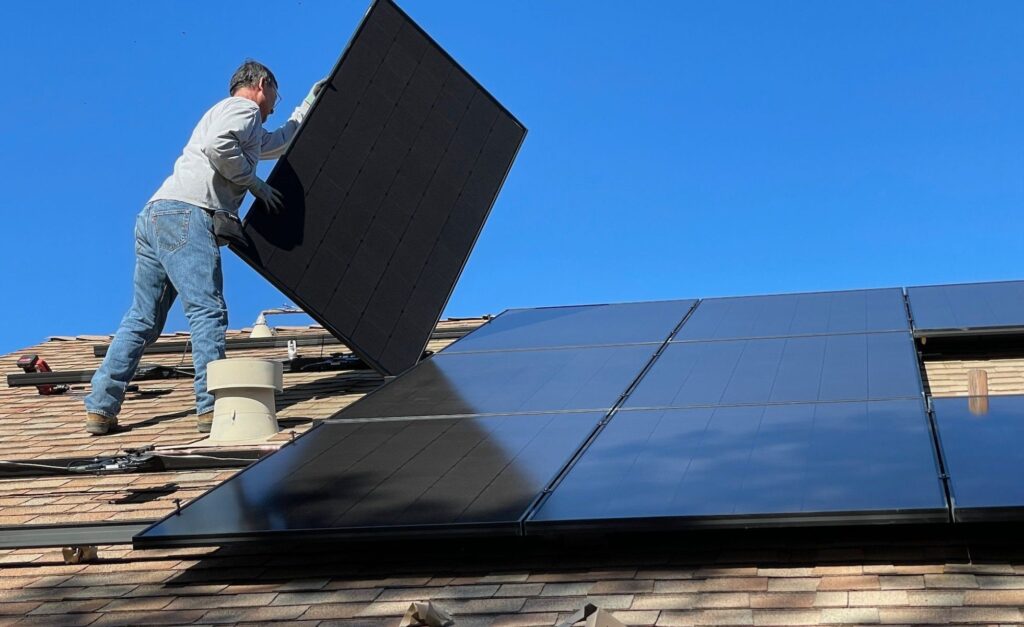
2.4 Professional Maintenance and Repairs
Schedule Annual Check-ups: While clients can perform basic maintenance, recommend professional inspections at least once a year. Certified solar technicians can conduct thorough evaluations, including electrical system checks, to ensure everything operates correctly.
Address Repairs Promptly: If any issues are identified during inspections or through monitoring, stress the importance of immediate repairs to prevent further damage or inefficiencies.
Details on What Professional Maintenance Covers: Clarify what clients can expect during a professional maintenance visit, including detailed electrical system checks, inverter inspection, and possible firmware updates for smart monitoring systems.
Establish a Maintenance Contract: Discuss the benefits of establishing a long-term maintenance contract with a professional service provider, offering clients peace of mind and ensuring their system is always in top condition.
Certification and Insurance: Advise clients to ensure that any hired professionals are certified solar technicians and have the appropriate insurance coverage to work on their property.
2.5 Educating Clients on Potential Issues
Inverter Maintenance: The inverter, which converts solar energy into usable electricity, is a critical component. Educate clients on listening for unusual noises or checking for error messages that might indicate inverter issues.
Snow and Ice: In colder climates, advise on the best practices for removing snow or ice from panels to prevent damage and restore energy production quickly.
Pest Control: Birds, rodents, and insects can sometimes nest under panels, causing damage. Recommend installing pest deterrents if this becomes an issue.
Interactive Troubleshooting Guides: Provide clients with interactive troubleshooting guides or access to an online knowledge base where they can learn about common issues and how to address them.
Customized Advice Based on Installation Type: Offer maintenance and troubleshooting advice tailored to the specific type of solar installation, whether ground-mounted systems, rooftop panels, or solar carports.
Workshops and Training Sessions: Organize workshops or training sessions for clients on basic solar panel maintenance and troubleshooting, empowering them with the knowledge to care for their installation.
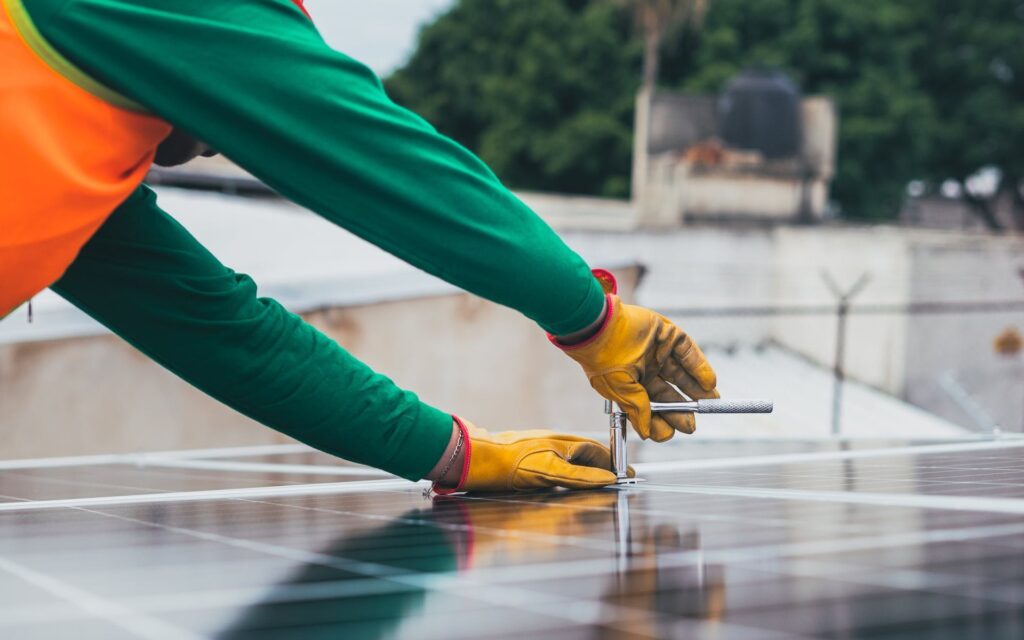
Section 3: FAQ for Solar Panel Maintenance
Q1: Do solar panels require a lot of maintenance?
Solar panels require minimal maintenance, mainly cleaning and occasional inspections to ensure they operate efficiently.
Q2: How often should I clean my solar panels?
Cleaning frequency depends on your location, but generally, solar panels should be cleaned 1-2 times a year. In dusty areas or locations with frequent bird droppings, more frequent cleaning may be necessary.
Q3: Can I clean solar panels myself?
Yes, you can clean solar panels using a soft brush or cloth and mild soap. However, for rooftop installations or hard-to-reach areas, hiring a professional cleaning service is recommended for safety.
Q4: What’s the best time of day to clean solar panels?
Early morning or late evening is ideal for cleaning solar panels to avoid hot surfaces and reduce the risk of water spots from quick drying.
Q5: How do I know if my solar panels need maintenance?
Regular monitoring of your solar energy output will alert you to any significant drops in efficiency, which could indicate the need for maintenance.
Q6: Can snow damage solar panels?
Solar panels are designed to withstand the weight of snow. However, accumulation can block sunlight. It’s usually best to allow snow to melt naturally, but if necessary, you can gently remove snow with a soft brush.
Q7: What should I do if a solar panel is damaged?
If you notice any physical damage, such as cracks or loose connections, contact a professional solar technician immediately to assess and repair the damage.
Q8: How does weather affect solar panel maintenance needs?
Harsh weather conditions like heavy rain, snow, and high winds can necessitate more frequent inspections and maintenance to ensure panels are secure and free of debris.
Q9: What are the risks of not maintaining solar panels?
Neglecting solar panel maintenance can lead to reduced efficiency, shorter lifespan of the panels, and in some cases, safety hazards.
Q10: Can I use a pressure washer to clean solar panels?
Using a pressure washer is not recommended as it can damage the panels. Stick to gentle cleaning methods with soft brushes or cloths.
Q11: How can I protect my solar panels from birds and pests?
Installing bird deterrents or critter guards can help protect your solar panels from birds and rodents that might nest under or damage the panels.
Q12: Are there any professional services for solar panel maintenance?
Yes, many companies offer professional solar panel maintenance services, including cleaning, inspections, and repairs. It’s beneficial to schedule annual check-ups to ensure your system’s longevity and efficiency.
Conclusion
Ensuring the enduring efficiency and reliability of solar panels requires a commitment to regular maintenance and care. By adhering to the guidelines and tips provided, solar panel owners can significantly contribute to the sustainability and efficacy of their renewable energy systems.
At SolarCtrl, we understand the importance of maintaining your solar investment. Our team of experts is dedicated to providing top-notch advice, services, and support to keep your solar panels performing at their best. Remember, a well-maintained solar panel system not only benefits the environment but also secures your energy future.
Contact SolarCtrl today to learn more about how we can assist you in optimizing your solar energy system. Let’s work together to harness the power of the sun efficiently and sustainably.
